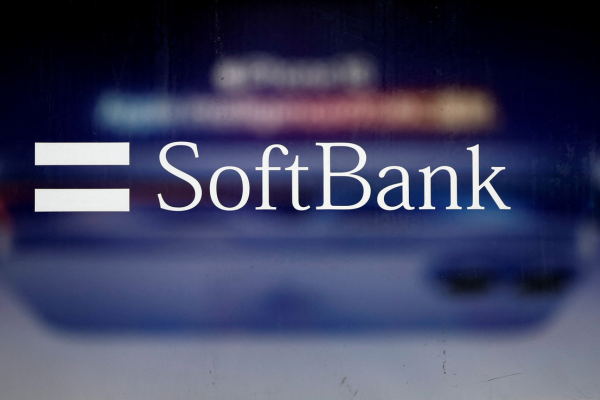The EU’s Digital Identity Wallet is coming

Mike Summers at iProov explains what the EU’s Digital Identity Wallet is and what it means for the future of ID
Driving licence? Check. Degree certificate? Check. Health records? Check.
Imagine a mobile app that combines all of your most important documents and details with services you use every day like payments apps and travel documents.
The EU’s Digital Identity Wallet has been in the works for several years now. While eIDAS 1.0 and the use of physical eID cards was not widely adopted, the latest iteration of the identity scheme is reaching pilot stage and set to be in the hands of consumers across the nation states in the next few years.
So, what can we expect from the digital identity scheme, and what does this mean for digital identity as a whole?
What is the EU Digital Identity Wallet?
The EU Digital Identity Wallet scheme aims to enable every European citizen to have a form of mobile identification and the ability to share and verify credentials and attributes in a simple way, across borders.
As well as hosting traditionally government-owned identity credentials – like passports and driving licences – this scheme also aims to bring private sector organizations into the mix to enable payments and verify qualifications, among other future potential uses.
So, say you’re a French citizen moving to Belgium and are applying for a new job – with the EU Digital Identity Wallet, the idea is that your employer will be able to easily verify your qualifications and demonstrate your right to work in the nation even across borders.
An ambitious scheme
The identity wallet isn’t short on ambition. Europe has 457 million citizens it needs to support. Plus, achieving interoperability between public and private organisations across borders, will require sensitive and careful stakeholder management.
Most importantly though, it needs mass user adoption. The key measures of the wallet’s success will be how many citizens enrol and how many continue to use the service, measured by the number of transactions completed, attributes shared and attestations made.
To develop the product, the European Commission will be running a series of large scale pilots and inviting member states, public sector organisations and private sector technology companies to run a series of trials.
To participate, these pilots need to demonstrate that they can successfully onboard users, securely share credentials between providers and relying parties, and complete a high number of cross-border transactions.
Getting users onboard
The pilots most likely to succeed are those that consider the following four considerations:
Security
The rewards of such a scheme are high, but so too are the risks. Security, especially at the initial enrolment and verification stage, needs to be robust to protect access to the highly sensitive personal data the wallet will grant access to.
Ease of use
For this scheme to replace traditional well-established identity methods, like our passports, it needs to be simple enough for users to access, navigate and use.
Inclusivity
While a positive user experience is important to maintain broad popularity and use, the second layer to this is inclusivity and accessibility. The wallet needs to be accessible to the broadest spectrum of citizens. As such, any additional verification methods should be user intuitive, require minimal physical effort and avoid cognitive overload. In addition, the solution must mitigate against bias and support diverse customer populations in multiple regions.
Privacy
Europe is already leading the world when it comes to privacy laws, so understandably any technology vendors competing are going to need to demonstrate they’re able to protect the integrity of user data. This is going to be imperative to convincing privacy-conscious Europeans too.
Biometrics and the future of digital identity
Biometric technology is likely to not only power the winning solution of this scheme, but a whole host of future schemes, due to its unique offering of high security without compromising accessibility or convenience.
Unlike other authentication methods like passwords, biometric data is unshareable, meaning it cannot be stolen or shared in the same way or be part of attacks at a large scale. Modern solutions are difficult to spoof, and those championing a cloud-based approach to biometrics can continue to monitor, evolve and resist new threats like deepfakes.
Facial verification stands out for any government-initiated scheme. After all, it’s able to verify users against photos on already government-issued sources of identity like passports and driving licences. As such, it can verify users against an existing ‘source of truth’.
It’s highly accessible too. Facial verification is available on even the most basic smartphones, as all that’s needed is a camera and light rather than costly additional sensors or additional hardware like a smartcard.
The leading facial verification solutions also enable passive authentication, meaning users aren’t required to ‘do’ any action to authenticate themselves (such as nodding, pointing, repeating a sentence). This is very important for usability.
If successful, the EU digital wallet is likely to inspire a wealth of other similar schemes across the world. Suffice to say, wherever you are in the world, it’s worth keeping a close eye on how this project evolves for insights into what the future of your digital identity might look like.
Mike Summers is Regional Sales Director EMEA at iProov
Main image courtesy of iStockPhoto.com

Business Reporter Team
You may also like
Most Viewed
Winston House, 3rd Floor, Units 306-309, 2-4 Dollis Park, London, N3 1HF
23-29 Hendon Lane, London, N3 1RT
020 8349 4363
© 2025, Lyonsdown Limited. Business Reporter® is a registered trademark of Lyonsdown Ltd. VAT registration number: 830519543





